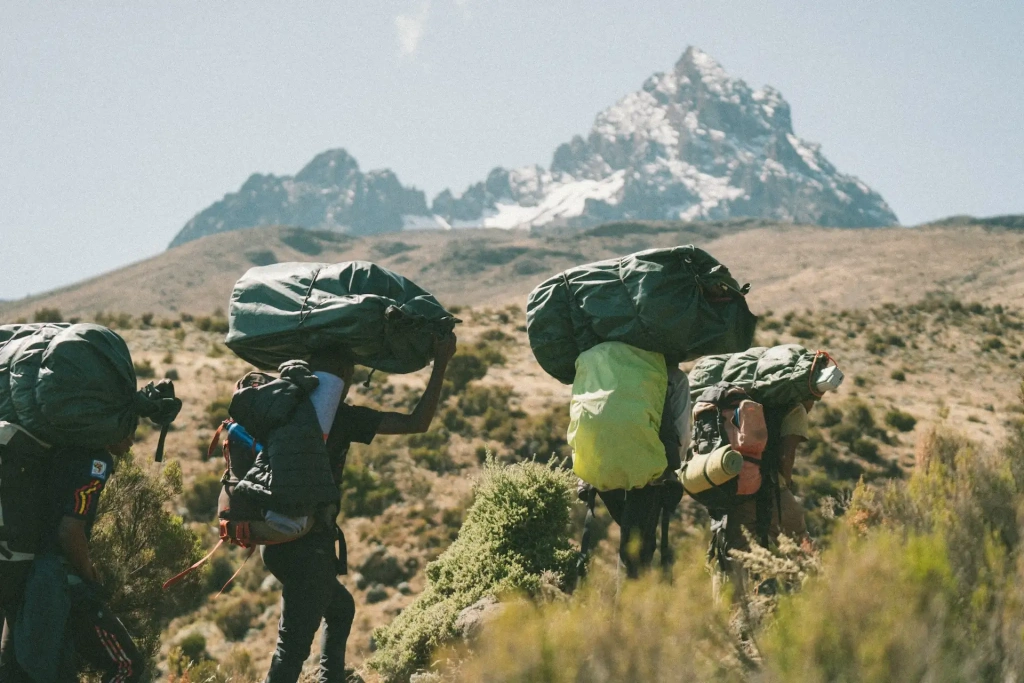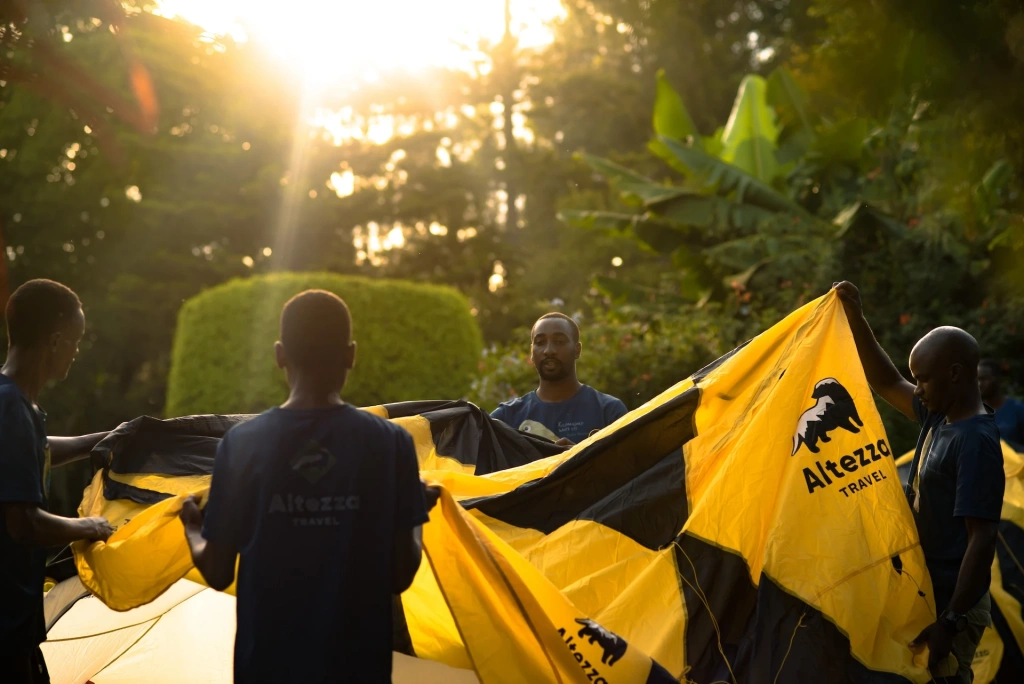The Kilimanjaro climbing industry is one of the few stable sources of income for locals in the region. Each year, the popularity of such trips increases, and with it, more companies enter the market whose main priority is attracting clients through low prices. But behind those prices, there is almost always exploitation — extremely low wages, inadequate gear, lack of warm clothing, and sometimes even fatal incidents. How to avoid becoming part of this chain, and why it’s important to choose a tour operator carefully — explained by Altezza Travel.
How some Kilimanjaro companies exploit porters
To offer attractive prices, budget operators cut corners on safety, salaries, and food for the team, leading to dozens of porter deaths each year. Most die from lack of help or evacuation in cases of cerebral or pulmonary edema, or hypothermia. This happens because companies:
- Don’t check gear before the climb. Many porters go on expeditions in clothes not suitable for high altitudes: everyday jackets, jeans, and worn-out casual shoes. Sometimes, porters are even seen hiking in flip-flops.
- Don’t provide hot meals. The body requires a high-calorie intake to function properly at altitude. Some operators feed their team just once a day, usually with ugali (a maize flour porridge) and rice with bread. Meat and vegetables are entirely missing from their staff’s diet.
- Pay extremely low wages. The recommended porter wage on Kilimanjaro is $10–12 per day, but many companies pay just $3–6. Some even refuse to pay if a porter falls ill and descends early. As a result, porters are forced to continue climbing while doing physically demanding work. Completing the expedition doesn’t guarantee payment either — we know of dozens of cases where salaries were delayed or never paid at all.
Why do porters agree to such conditions?
As in many developing countries, Tanzania has a shortage of jobs. Difficult porter work is one of the few available options for local villagers, and even people from other parts of Tanzania.
Moreover, working in expeditions offers the chance to learn English and eventually become a guide, increasing one's income several times. Leading guides at reputable companies earn salaries comparable to mid-level office managers. That’s why many young Tanzanians do whatever it takes to break into the industry.
The consequences
In these companies, porters work to exhaustion under constant stress and risk. Their wages barely cover food, and they ignore symptoms of altitude sickness out of fear of losing pay. They push through because “everyone’s struggling” and “everyone is sick.”
They also can’t expect help from teammates — everyone is focused on their own survival, so a sick porter is unlikely to get help carrying clients’ heavy duffels. As a result, they fall behind the group and are forced to sleep on the trail.
Every year, park rangers register many deaths of porters from hypothermia or pulmonary/cerebral edema.
At Altezza Travel, this never happens. Our team undergoes medical checks twice a day, and if a porter falls ill, we immediately assist them in descending the mountain. They are paid in full and receive medical treatment covered by us. In rare cases requiring helicopter evacuation, we pay for that too.
How to avoid supporting labor exploitation
1. Choose KPAP-certified tour operators
The Kilimanjaro Porter Assistance Project (KPAP) was founded in 2003 to prevent such tragedies.
Only companies that follow these rules can join:
- Pay porters at least the minimum wage. At the time of writing, this is $10/day.
- Provide three full meals a day: breakfast, lunch, and dinner, including meat.
- Equip porters properly. Every porter must have quality boots, a backpack, a sleeping bag, and warm clothing suitable for high altitudes. The gear should be checked before departure.
KPAP monitors compliance. Each expedition includes a designated monitoring porter who files a report to KPAP, which then provides feedback to the company with recommendations.
The organization is independent. Its advisory board includes citizens of the USA, EU, and Tanzania, who jointly decide on new memberships. Membership is completely free.
Altezza Travel is KPAP’s largest member. Today, over 3,000 porters work in our mountain teams, all under KPAP protection.

Read more in our detailed article about KPAP and its work.
2. Avoid prices that are too low
A safe climb for the team can’t cost less than the average price charged by KPAP-listed tour operators. For example, a 7-day Lemosho route usually costs around $2,900. If someone offers it for $2,000 or even $2,300, they are almost certainly cutting expenses on staff welfare and safety. This is basic economics. A week-long journey to nearly 6,000 meters (19,500 feet) with a professional team cannot be cheap.
Altezza Travel pays the highest wages on the market, buys food only from trusted suppliers, regularly upgrades gear, and services its vehicle fleet in certified workshops. Our expeditions are known for their comfort and safety for all participants.
Climbing Kilimanjaro is not a typical vacation. It involves months of planning: booking the trip, buying flights, gear, and insurance. In the context of these expenses, saving $300–500 is a small amount, but it’s exactly what determines whether your journey will be safe and ethical for the people helping you climb the tallest mountain in Africa.
3. Make sure the company pays VAT
A VAT certificate is one of the signs that a company regularly conducts expeditions. It indirectly confirms the safety and legitimacy of its operations.
In Tanzania, a company must register for VAT if its annual turnover exceeds 200 million shillings (around $75,000). If a tour operator claims it hasn’t yet met the threshold, it likely serves fewer than 30 clients per year, and such volume rarely comes with solid safety protocols or experienced guides.
Altezza Travel received its VAT certificate back in 2014, and by 2025 we became the largest taxpayer in the Kilimanjaro region, contributing $1.2 million to Tanzania’s budget for the year 2024. Our total tax payments exceeded those of any other business in the area.
All content on Altezza Travel is created with expert insights and thorough research, in line with our Editorial Policy.
Want to know more about Tanzania adventures?
Get in touch with our team! We've explored all the top destinations across Tanzania. Our Kilimanjaro-based adventure consultants are ready to share tips and help you plan your unforgettable journey.

















